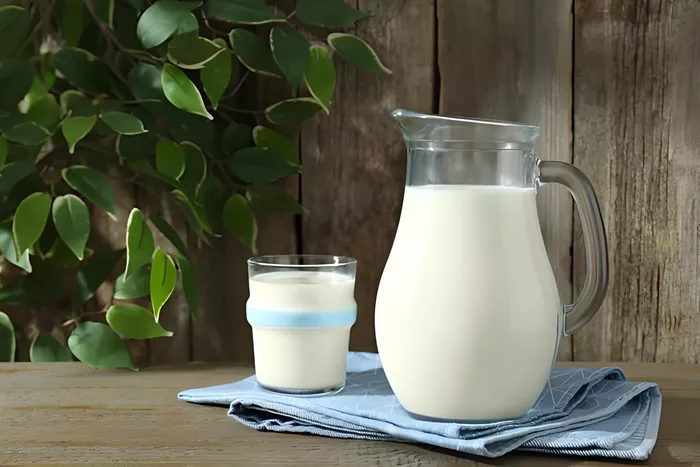Colorectal cancer is the third most common cancer globally, with over 1.92 million cases reported in 2022. The incidence of colorectal cancer is notably higher in high-income countries and lower in low-income countries. Interestingly, the rates of colorectal cancer in migrant populations tend to adjust to the levels of their adopted country within a decade, suggesting that environmental and lifestyle factors play a significant role in its development.
The International Agency for Research on Cancer has classified processed meats and alcoholic beverages as carcinogenic to humans. In contrast, organizations such as the World Cancer Research Fund and the American Institute for Cancer Research have found substantial evidence that increased consumption of milk, dairy products, calcium (including supplements), dietary fiber, and whole grains may help reduce the risk of colorectal cancer.
In this study, researchers examined the association between 97 dietary factors and colorectal cancer risk. From 1996 to 2001, 1.3 million women in England and Scotland participated in the Million Women Study, where they provided data on their lifestyle, social, and demographic factors via a recruitment questionnaire. Participants were re-surveyed every three to five years after the initial recruitment.
For this specific study, data from the first resurvey—conducted around three years post-recruitment—were used, as it was the first time dietary habits were assessed. The questionnaire asked about weekly food consumption, including both semi-quantitative and quantitative details about the frequency of specific foods and food groups. In total, 97 dietary factors were included in the analysis, with 62 measured quantitatively and 35 measured in binary form (presence or absence of consumption).
The primary endpoint of the study was the incidence of colorectal cancer. The research team utilized Cox proportional hazard regression models to estimate the hazard ratios for each dietary factor’s association with colorectal cancer incidence. Analyses were adjusted for several factors, including socioeconomic status, education, BMI, height, exercise, alcohol intake, dietary energy, smoking, family history of bowel cancer, and use of hormonal therapy for menopause.
A total of 542,778 women, with an average age of 59.2 years, were included in the study. Participants were followed for an average of 16.6 years, during which 12,251 cases of colorectal cancer were diagnosed. The cancer patients tended to be older, taller, exhibited more adverse health behaviors, and had a higher familial history of bowel cancer compared to the overall study population.
Out of the 97 dietary factors analyzed, 17 were significantly associated with colorectal cancer risk. The most notable associations were with calcium and alcohol intake. While alcohol intake showed a positive association with colorectal cancer risk, calcium intake was inversely associated with the risk.
Additionally, the consumption of yogurt, milk, riboflavin, phosphorus, potassium, and magnesium was also inversely associated with colorectal cancer risk. Other factors, such as fruit, whole grains, fiber, folate, carbohydrates, vitamin C, breakfast cereals, and total sugars, were similarly linked to a reduced cancer risk.
Conversely, increased intake of processed and red meats was positively associated with higher colorectal cancer risk. Interestingly, when the analysis adjusted for calcium intake, the inverse associations for milk, riboflavin, phosphorus, total sugars, breakfast cereals, folate, yogurt, potassium, and magnesium were diminished. Similarly, adjusting for milk intake reduced the associations for potassium, riboflavin, and breakfast cereals.
Further adjustments for fruit intake diminished the associations for riboflavin, phosphorus, fiber, breakfast cereals, vitamin C, total sugars, carbohydrates, folate, magnesium, and potassium. Given the strong correlation between various dietary factors, the researchers assessed the independent association of milk and calcium with colorectal cancer risk. The analysis revealed that calcium intake was independently linked to a reduced risk of colorectal cancer, while milk consumption did not show an independent effect.
To further explore this relationship, the team conducted a Mendelian randomization analysis of milk intake, using genetic data from the colorectal transdisciplinary study, the genetics and epidemiology of colorectal cancer consortium, and the colon cancer family registry. This analysis confirmed an inverse relationship between genetically predicted milk consumption and colorectal cancer risk.
The study found a strong positive association between alcohol consumption and colorectal cancer risk, while calcium intake was inversely associated with the risk. The inverse associations observed with other dairy-related factors, such as milk and yogurt, were primarily attributed to their calcium content. The findings underscore the potential role of calcium and dairy products in lowering colorectal cancer risk, providing further evidence of the benefits of dairy in promoting long-term health.
This research highlights the need for a balanced diet rich in calcium and other beneficial nutrients, which may contribute significantly to reducing colorectal cancer risk. Further investigation into the mechanisms linking dairy consumption to cancer prevention could help shape future dietary recommendations and public health strategies.
You Might Be Interested In:
-
Lily Allen Seeks Trauma Treatment After Split from Husband David Harbour
-
New Children’s Hospital in Cambridge to Pioneer Integrated Care for Physical and Mental Health

